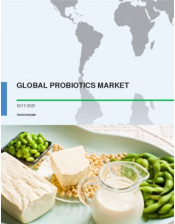2015 was the year of the leaky gut.
Searches for the term have been trending steadily upwards, and health blogs are rife with fear-inducing headlines like “15 Signs You Might Have Leaky Gut and What to do about it”.
The problem with this one is that it’s not a medically recognized condition, and there is no credible evidence that such a thing exists. “Leaky gut” is more of a catch-all catch phrase for a variety of ailments.
But there’s a silver lining to some of this pseudo-science. Fear over leaky gut has gotten a lot of people to turn their attention to their gut health—something that is very real, and very important, but often ignored.
Basically, gut microbiota is essential to our health since it’s a key element in actually absorbing the nutrients from our food.
We also have a whole other brain—dubbed the second brain or enteric nervous system—residing in our gut. Researchers believe this initially evolved to help keep things moving (digestively speaking), but the system is a bit more complex than that.
“A big part of our emotions are probably influenced by the nerves in our gut,” Emeran Mayer, professor of physiology, psychiatry and biobehavioral sciences at the David Geffen School of Medicine at U.C.L.A. told Scientific American in 2010.
But even though digestive health is a central part to our physical and emotional wellbeing, our microbiota can be fragile. Anything from a course of antibiotics to stress to a bad diet can impact the thousands of different species’ that live in our bellies.
This is where probiotics come in. While they’re not a magic cure-all, and don’t make up for poor lifestyle choices, they are important to maintaining and replenishing healthy gut bacteria.
Global probiotics market by application 2014
Source: Technavio, 2015
Probiotics will see a surge in popularity over the next four years
Increased awareness of probiotics and demand for functional food products will be key growth drivers in the global probiotics market from 2014 to 2019. According to a new report from Technavio, the market will grow by $13.58 billion, to reach a total value of $47.91 billion in 2019.
The changing face of the probiotics market is due in large part to expansion into new sectors, intensive R&D, and product innovations, all of which are orchestrated by the top market vendors.
Technavio analysts have identified the top 14 vendors in the global probiotics market:
Attune Foods
Attune Foods was established in 1908 and specializes in gluten-free cereals. In 2009, the company entered the probiotic bars segment by acquiring Erewhon, Uncle Sam, New Morning, and Skinner’s.
Bifodan
Founded in 1992 and headquartered in Denmark, Bifodan provides probiotic solutions to the dietary supplements industry. Its first diary probiotic product was launched under the brand name A-38.
BioCare Copenhagen
This Danish bio-venture company specializes in microbial active ingredients. The company offers products related to women’s health care, digestive health, immunity, and weight management. BioCare Copenhagen primarily works with yeast cells and lactic acid bacteria.
BioGaia
Established in the 1980’s, BioGaia is a leading probiotic biotechnology company headquartered in Sweden.
Chr. Hansen
Chr. Hansen offers probiotics in dairy products, infant formula, and dietary supplements. All their products are clinically tested, and a key focus area for the company is on R&D.
Daflorn
Daflorn was founded in 2001 and is headquartered in Bulgaria. It creates Lactobacillus bulgaricus and other fermented milk probiotic microorganisms.
Danisco
Danisco is a Denmark-based subsidiary of DuPont. The company was awarded the 2014 North American Award for New Product Innovation for introducing a new probiotic animal feed. The probiotic ingredient can be used as an additive to antibiotics to improve gut health in poultry.
Danone
In 2012, the company formed an association called the Global Alliance for Probiotics along with other key players like Yakult, Danisco, and BioGata. The major aim of this association was to seek a three-year moratorium from the European Commission and European Food Safety Authority. In 2014, the company filed for a patent for one of its strains (Bifidobacterium animalis ssp.) after studies revealed that this strain can help treat irritable bowel syndrome and inflammatory bowel disease.
Deerland Enzymes
The company was established in 1990 as an enzyme consulting company in the US. It is regarded as one of the most popular manufacturers of enzyme and probiotics for dietary supplements.
Lallemand
This Canadian company was founded in 1934 and specializes in probiotic ingredients for gut health, oral health, better immunity, and women’s health.
Nestlé
Despite being a conglomerate, the company has a wide presence in the field of probiotics. The company is considered to be the pioneer in developing infant formula with probiotics, including Bifidobacterium lactis in combination with docosahexaenoic acid and arachidonic acid (Omega 3 and 6). This product is widely available in the US and Canada. The company also launched a probiotic substitute for curd under the brand name Nestlé Actiplus Dahi in the Indian market in 2011.
Probi
Probi is a probiotic company established in 1991. The company focuses on R&D in the following segments:
- Gastrointestinal health
- Immunity
- Metabolic health (including cardiovascular disease, type 2 diabetes, and obesity)
- Nutrition uptake
Winclove Probiotics
Winclove Probiotics offers probiotics solutions, including its flagship brand Ecologic. The company was founded in 1991 and is headquartered in Amsterdam.
Yakult
This Japanese company is considered to be one of the pioneer of probiotic products. It specializes in probiotic beverages, and the organization has published several research papers on the health benefits of its products.





